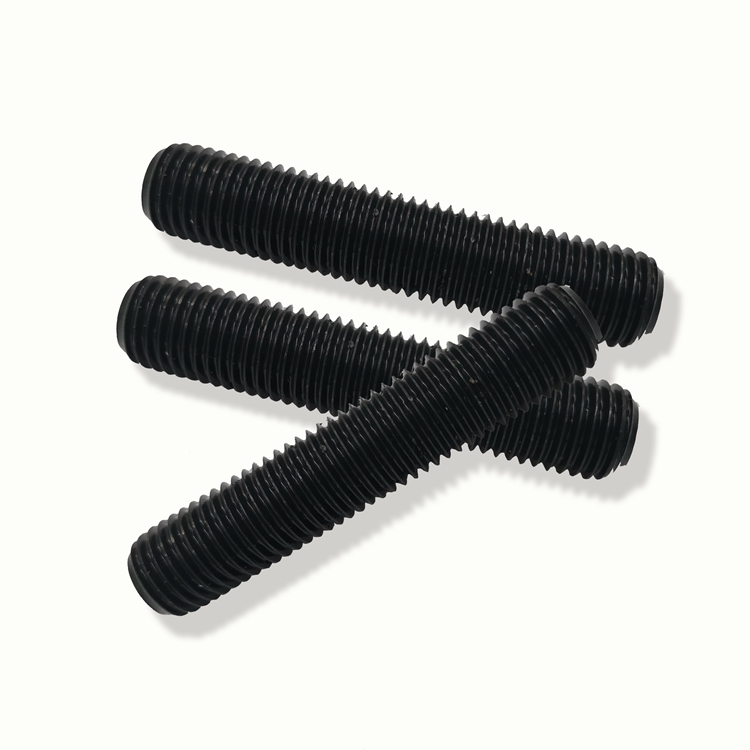1 2 bolts companies
Desemba . 07, 2024 07:39 Back to list
1 2 bolts companies
The Impact of 1% and 2% Bolts on Industries An In-Depth Analysis
In the world of engineering and manufacturing, the significance of bolts cannot be understated. These small yet crucial components play a pivotal role in the assembly and integrity of various structures and machinery. Among the diverse selection of bolts available in the market, the variations termed as 1% and 2% bolts have been gaining attention for their unique properties and advantages in specific applications. In this article, we explore the importance, applications, and advantages of these specialized bolts, along with some of the companies that are pioneering their production.
Understanding 1% and 2% Bolts
1% and 2% bolts refer to specific types of high-strength bolts used in the construction and manufacturing industries. The percentages typically indicate the percentage composition of alloying elements in the steel used to manufacture these bolts. For instance, a 1% bolt may contain 1% of a specific alloying element like molybdenum or chromium, which enhances its mechanical properties, including tensile strength and resistance to corrosion.
These bolts are designed to withstand greater forces and stresses compared to standard bolts, making them ideal for high-load applications. Their strength and durability are achieved through careful engineering and material selection, often involving heat treatment processes that improve their performance in demanding environments.
Applications in Various Industries
1% and 2% bolts find extensive use in a range of industries, including construction, automotive, aerospace, and manufacturing. In construction, these bolts are often used in large structures like bridges, skyscrapers, and commercial buildings, where the integrity and safety of the framework are paramount. Their ability to handle dynamic loads and resist fatigue makes them indispensable for engineering projects that require long-lasting durability.
In the automotive sector, these bolts are used to secure critical components, ensuring that vehicles can endure the stresses of daily operation. Similarly, in aerospace, where weight and reliability are crucial, 1% and 2% bolts help maintain structural integrity and safety in aircraft design. Manufacturing sectors, particularly those involving heavy machinery or equipment, also benefit significantly from these high-strength bolts, which can enhance the longevity and safety of their products.
Advantages of 1% and 2% Bolts
1 2 bolts companies

One of the primary advantages of 1% and 2% bolts is their exceptional strength-to-weight ratio. This characteristic allows engineers to design lighter structures without compromising strength, thus contributing to better fuel efficiency and overall performance in vehicles and aircraft. Furthermore, the corrosion resistance lent by the alloying elements ensures that these bolts can operate effectively in harsh environments, minimizing the need for frequent replacements and maintenance.
Additionally, these bolts often exhibit superior fatigue resistance. In applications where repeated loading and unloading of parts are common, the enhanced durability of 1% and 2% bolts can lead to reduced failure rates and increased operational efficiency. This not only lowers costs associated with repairs and replacements but also enhances safety across a range of applications.
Companies Leading the Charge
Several companies have emerged as leaders in the production of 1% and 2% bolts. For instance, Fastenal, a major distributor of industrial and construction supplies, has developed a line of high-strength bolts tailored to meet the rigorous demands of various industries. Their commitment to quality and innovation ensures that customers receive reliable products designed for performance and safety.
Another notable player is Hilti, which specializes in high-performance construction materials and tools. They offer an array of fastening solutions, including 1% and 2% bolts, catering to professionals who require exceptional quality and performance in their projects.
Additionally, Screws and Bolts Co. is dedicated to manufacturing customized bolt solutions, including those that meet specific project requirements. Their flexibility and focus on innovation make them a popular choice among engineers and contractors alike.
Conclusion
The development and application of 1% and 2% bolts mark a significant advancement in fastening technology. Their unique properties provide considerable advantages across multiple industries, enhancing the safety, performance, and longevity of various structures and products. As the demand for strength and durability continues to grow, these specialized bolts are poised to play an increasingly vital role in the future of engineering and manufacturing. Companies that invest in the research and production of these high-quality bolts will likely be at the forefront of innovation in this critical sector.
Latest news
-
Wire Bolts Suppliers: Durable & Reliable Fasteners for Every Project
NewsAug.25,2025
-
Premium Cabinet Bolts Supplier | Wholesale & Custom Solutions
NewsAug.24,2025
-
Reliable Axle Nuts Supplier | Quality & Precision Fasteners
NewsAug.23,2025
-
Durable Bolts for Lawn Mower Handle - Top Supplier & Manufacturer
NewsAug.22,2025
-
High-Quality Bolts for Lawn Mower Handle Supplier & Manufacturer
NewsAug.21,2025
-
Reliable Axle Nuts Supplier | High-Quality Automotive Parts
NewsAug.19,2025
